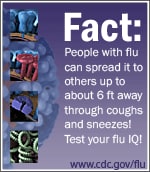 |
Thank you www.robot-hugs.com for the meme!!! |
Although I am better now, I have been there for most of this. All of this has been said to me (and I know others thought it.) I know it isn't fun to have family members or friends who have chronic illness, but it can be very, VERY lonely. Trust me, the person in any one of those cartoon frames wishes that they could jump out of bed every morning, hold a "real" job, run with their kids and grandkids, and plan fantabulous social gatherings.
Let's make this a judgment free holiday season. Instead of avoiding the "negative" people in your life, ask if they would like to go shopping together or have a present wrapping day. Bring some Christmas cookies to someone and help them decorate their tree. Make it FUN, not a chore. If they want to hold a holiday party help them out.
Sometimes a person with chronic pain or illness is more comfortable in their own home, but they don't have the energy to put together the food. Can you imagine? So everyone goes someplace else for the fun and leaves the sick person behind (because they said it was ok....NO, it is not ok, but they don't feel like they have a choice.) Don't be afraid to just "do" things for them. Trust me, they feel bad enough, especially if they used to have the perfect parties and perfect food. If you are in their home and their bathroom looks a little dusty, take a cloth and discretely wipe things down. Unload their dishwasher while they sip a cup of tea.
Sure, ask how they are doing, but make conversations about other things.....tell them what is going on in your church and ask them if they would like to join in. Maybe they didn't make it to church to see the bulletin. Talk about who got a new puppy, or who is expecting a baby. Do a project together.....make a Christmas wreath, help them organize their family pictures...........I could go on and on and on.
We may not have many people who have leprosy these days....modern illness is often invisible. DO you know someone with chronic pain, interstitial cystitis, fibromyalgia, migraines, heart disease, arthritis, depression, anxiety, etc? I know you do. Because everyone does. The Blessed Mother Teresa said, “Not all of us can do great things. But we can do small things with great love.” And Nike said, "Just Do It."
For more on holidays, depression, and chronic illness like interstitial cystitis see:
Author, Speaker, Patient Advocate
 Just Tell Me What to Eat!
Just Tell Me What to Eat!
For step by step guidance for creating your own personal interstitial cystitis meal plan, see: Confident Choices®: Customizing the Interstitial Cystitis Diet.
For some basic, family-style, IC bladder-friendly recipes, see: Confident Choices®: A Cookbook for Interstitial Cystitis and Overactive Bladder
For health care workers: Interstitial Cystitis: A Guide for Nutrition Educators
**Please SHARE using the links below!**











